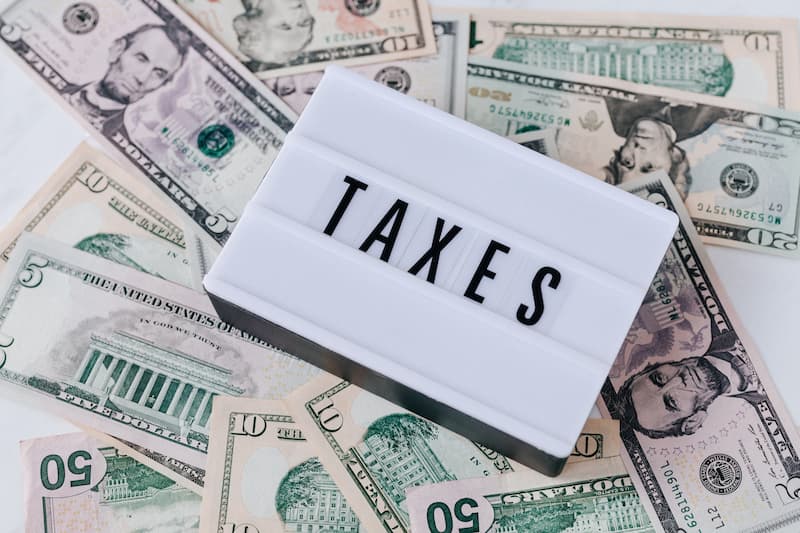What does the debt ceiling deal mean for small business? Regardless of your political beliefs, not shutting down the government over the debt ceiling is good for stability. We have shut down the government before over budget impasses, but, to my knowledge, never over raising our debt ceiling which impacts our ability to borrow money and impacts credit markets across the globe.
So what do federal debt, the debt ceiling debate, and the budget have to do with small business in America? TAXES! MORE TAXES!
No, this isn't a post about the government needing to raise your taxes to blow money on programs you don't like. It is a post on the effects of political debates on tax rates.
First, you have to understand what I mean by taxes affected by government policy. There are two types of taxes that small business pays:
- Direct taxes – these are the taxes that government imposes you and sets rates and policy decisions around (e.g. income taxes, sales taxes).
- Indirect taxes – these are the consequences that you pay as a result of government policy, things like higher interest rates, higher energy costs, etc.
Direct Taxes
Direct tax rates stayed the same in this first bill. There are no revenue increases, however the bill proposes a debt committee that, according to Republicans, can't explore revenue increases, and according to Democrats, can explore revenue increases. However, I would not expect much to happen until after the 2012 election on revenue increases.
After 2012 though, I feel fairly confident in stating that revenue increases will occur via a variety of mechanisms, including the following:
- Ending some subsidies (e.g. biofuels).
- Raising some personal income tax rates by a few percentage points (e.g. rolling back the Bush tax cuts, or a portion of them).
- Ending some tax code benefits (e.g. the corporate tax jet loophole – which was really only a way for companies to accelerate depreciation – a tax benefit they were going to get over time anyway. Most of us realize that this wasn't really a loophole as the company doesn't get out of paying tax altogether, they just accelerate a deduction they were already entitled to.).
- Lowering the C-Corporation income tax rate (ironically this may increase revenue as it will likely cause some major corporations to bring more investment and income back to the US – a popular move on both sides of the aisle and with corporate America).
As a business owner, you should consider the effect that each of these might have on you as it relates to your own tax obligations and cash flow. Ultimately it is likely that either party will have to raise taxes as there aren't enough cuts in discretionary spending to offset the amount of our budget consumed by defense, debt obligations, and social security, Medicare, and Medicaid. As neither political party really wants to say 'no' to any of these areas (you can't say no to prior debt obligations, they already exist) there is no way to pay for them with raising taxes – barring a massive economic recovery.
Indirect Taxes
Higher Interest Rates -
Indirect taxes are another matter. Right now, there is speculation that by having gridlock in Washington there is a likelihood that interest rates will rise as our country's credit rating deteriorates. If you borrow money and it is not at a fixed rate, this means your rate will go up. Indirect tax number one. I would re-look at loan documents to see if there is a cap on potential increases if interest rates get out of control.
Higher Health Care Costs -
If there is not more clarity into how health care reform will operate and there is not some type of reign in on health care costs, expect your health care renewals to continue to go up. Whether the company pays or the employee pays, someone ultimately pays. My renewal just went up by 7% after it went up 11% the year before. We're accountants that are all pretty healthy and young, no real reason for this that I can see? Indirect tax number two. Not much you can do here except to explore the possibility of wellness programs as a way of mitigating rate increases. Over 250 lives should at least explore self insurance.
Higher Energy Costs -
If we continue with the status quo of no real energy policy (nuclear, oil, renewable) I would expect energy prices to continue to rise as companies are not willing to invest material $$ into new capacity if that capacity (e.g. nuclear) has the potential to get regulated out of existence. Conversely, companies will be unwilling to invest heavily in renewables if there is a potential that the government will end subsidies of these technologies as a way of creating revenue increases (e.g. direct taxes – see above). Indirect tax number three and four – higher energy prices due to increased demand on fossil fuels for energy plants (e.g. oil, coal, natural gas) as these are the only things that currently appear 'safe' and the potential for environmental cleanup in the future due to NOT adopting renewables and cleaner energy sources (e.g. nuclear, wind, solar).
Conclusion
Plan on a modest tax increase (e.g. 3% - 4%) after the 2012 elections – likely the 2013 tax year, payable in 2014. This will be either payroll related or income tax related, but either way it's a tax you will pay. I would also plan on single to low double digit increases in each of the three indirect tax areas I outlined above (e.g. interest rates may go up by a percent, health care 5% - 10%, and energy 10%).
Can any of you think of any other direct or indirect taxes that may impact us all as part of this debate?






